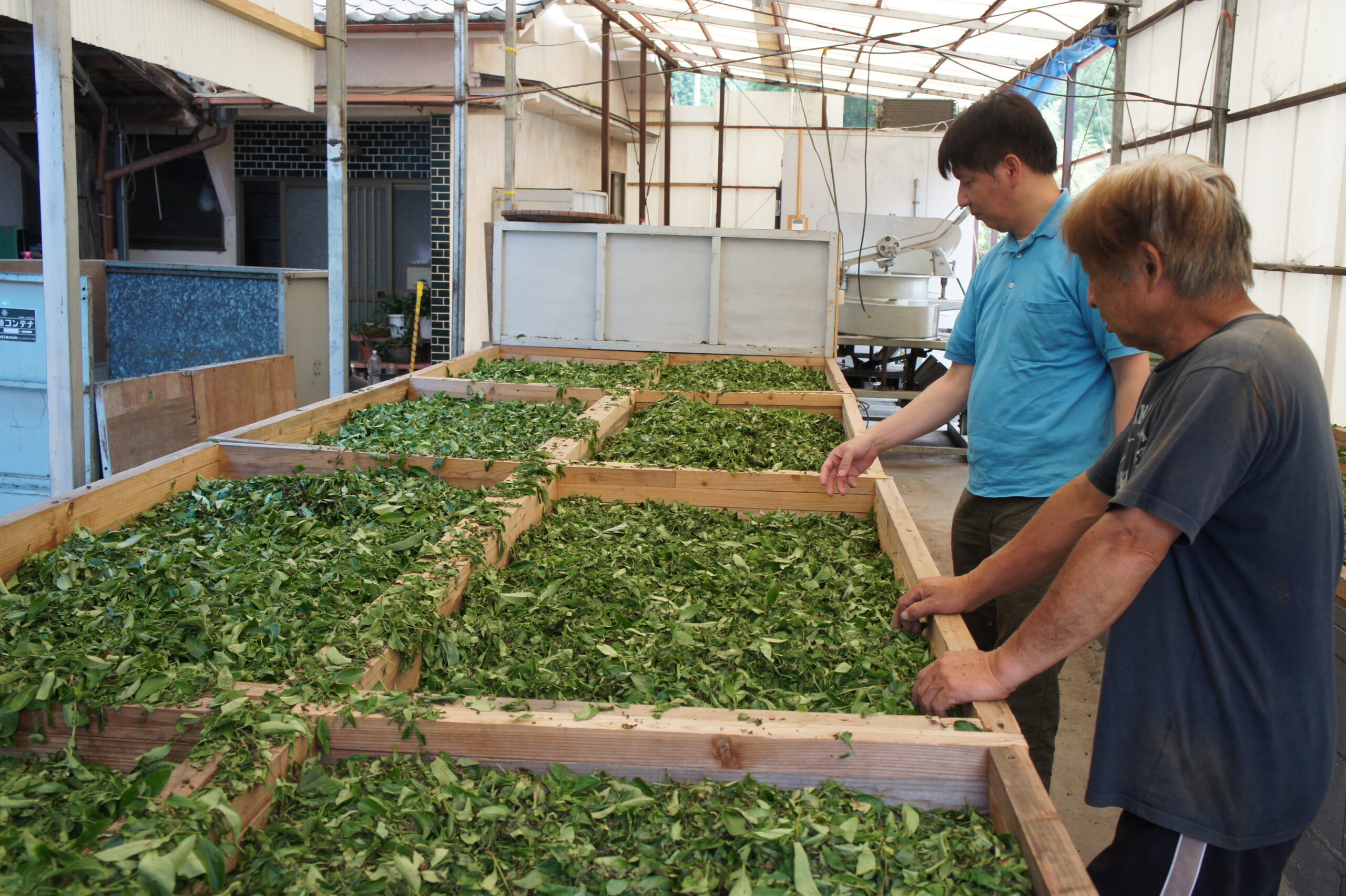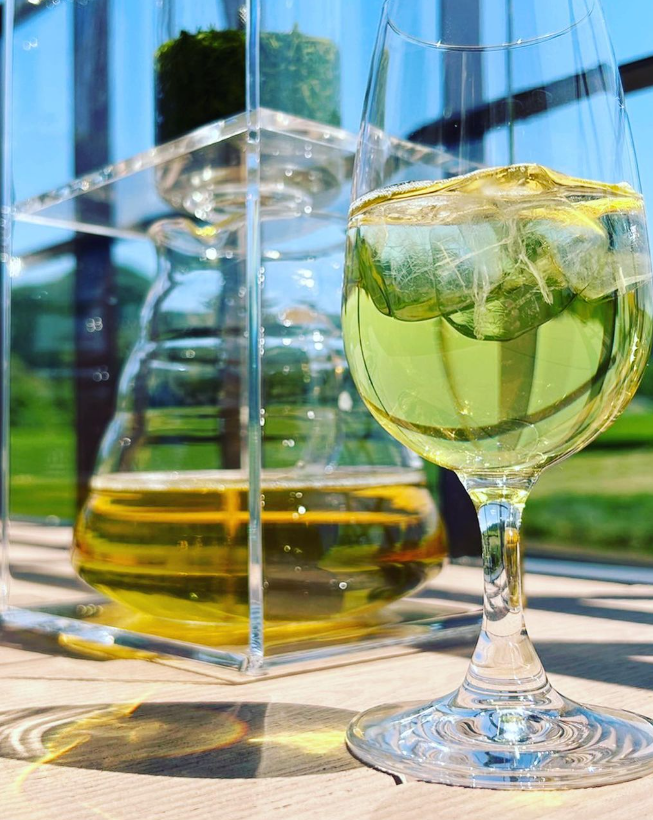
Tea Information From 日本茶BANK

2022.05.31 Update
Tonchi and Organic Advanced Place @ Kichi Shirokucha (Usuki City, Oita Prefecture) Takahashi Seicha Co.
目次
Takahashi Seicha, the first organic JAS certified company in Oita Prefecture.
Oita Prefecture in Kyushu does not have a major regional brand such as “Fukuoka’s Yamecha” or “Kagoshima’s Chiran Tea,” but there are many small-scale tea gardens throughout the prefecture that offer a wide variety of teas.
For sencha, there are “Kitsuki tea,” “Yabakeicha,” and “Bungo-Ono tea.
For kettle-fired Tamaryokucha, there is “Inoicha” and the tea commonly known as “Kicchomu-cha.
Among these, organic tea is the most popular. Kichomu-icha is located in Usuki.

The entire city of Usuki encourages organic farming, not only for tea, but for all crops.
Takahashi Tea, located in Usuki City, is the first company in Oita Prefecture to obtain JAS organic certification.
(Tea leaves are easily damaged by pests and diseases, and the “flavor” of tea is largely dependent on fertilizers. ) Because tea leaves are easily damaged by pests and diseases, and the “flavor” of tea is largely dependent on fertilizers, it has long been believed that it is impossible to grow tea without relying on pesticides and chemical fertilizers. (That is why it is amazing that “tea” was the first product in the prefecture to receive JAS organic certification!) )

More than 30 years ago, when organic orientation was not as widespread as it is today, the company placed the highest priority on food safety and security, and obtained JAS organic certification more than 20 years ago (2001), a foresight.
Takahashi Seicha is also the producer of the movie “Seed Sowing Traveler: Minori no Chacha” (released in March 2012; starring Takanori Jinnai and Reiko Tanaka), which focuses on organic farming. In 2013, Takahashi Seicha received the Production Bureau Director’s Award at the National Environmentally Friendly Agriculture Promotion Contest, and is a driving force in local agriculture.
Usuki City, Oita Prefecture, a leading organic farming area
As mentioned above, Usuki City is well known to organic lovers as “Organic Village Usuki,” with the entire city focusing on organic farming.
To begin with, there are many organic producers in Notsu Town, located on the mountain side of Usuki City.
The city supports them.
Organic farming requires organic soil! Therefore, the “Usuki City Soil Growing Center” was established to produce “Usuki Dream Compost” made from only plants, trees, and pig manure, and to accept many new farmers who want to start organic farming. The city also certifies crops grown without the use of pesticides and chemical fertilizers as “real food agricultural products” and promotes them as such.

We are currently visiting Usuki City for our production business.
The more we enter a region, the more we make connections here and there, and the more we can see things we never noticed before.
My memory cells are filled with information. This information is output when I least expect it.
This is how cooperation between regions starts.
The production sites in Japan are no longer a one-man show, but are now open to the public, and they are improving each other. The more we disclose, the more information, people, and money gather.

Culture of Usuki City
What kind of town is Usuki?” I am often asked recently.
In a word, it is a very Japanese town.
It has both the sea and mountains.
It has seafood and agricultural products, castle ruins, and the atmosphere of a castle town.

It is also a thriving fermentation town and home to the largest brewer in Kyushu, Fundokin (a pride of the Usuki people).
The scenic town has been the setting for several movies.
There is also a stone Buddha, a national treasure, and some kind of ancient and gratifying history…

In recent years, Usuki has also seen a resurgence of ceramics called “Usuki-yaki.

The area was formed around the Usuki Castle built by the Christian feudal lord “Otomo Sorin”.
Later, as the official kiln of the feudal lord “Inaba” who ruled this area, craftsmen from Shimabara (Nagasaki), Koishiwara (Fukuoka), and Komine (Miyazaki) were brought in to fire porcelain and ceramics, but the kiln, which originally started as a hobby of the retired master, declined and ceased after only 10 years of prosperity.
Then, in 2015, some 200 years later, local potters revived the kiln.
Usuki potteries are now very popular. It is even used as a decoration at the Hoshino Resort “Kai Beppu”.

Tea by Takahashi Seicha
Takahashi Seicha’s Tamaryokucha is highly supported by the potters of Usuki Pottery.
It is organic and tastes as crisp and clean as the blue sky here. The taste is as clean and refreshing as the blue sky here.
The strong, wild flavor of the tea leaves is also felt straight away.
(They used to make kettle-fired tea as well. (They used to make kettle-fired teas, too.)

Mr. Takahashi, in addition to Jade Green Tea, also produces black tea, gabalon tea, and white tea, and he is full of challenging spirit. He plans to increase the number of tea varieties in the future.
Of course, he does all of this organically, so his vitality is unbelievable!
Nozu-cho, Usuki City, where Takahashi Seicha is located, is the birthplace of “Kichi Shiroku,” the king of Oita Prefecture’s pomposity. That is why the tea here is called “Kichishirokucha.
Elementary school students in Oita Prefecture learn about Kichi Shiroku’s Tonchi stories at school. He is a local celebrity.
Perhaps that is why Mr. Takahashi is also a Tonchi lover. He is very shy, but kind-hearted and funny!

Oita is also known for its barley shochu. Here in Usuki, there are many shochu and sake breweries.
This organic Tamaryokucha goes very well with Mugi-Shochu.

I know it’s not possible, but the magic of the words resonated so beautifully with me that the next day I had a hangover so bad I couldn’t move….
The sea and mountains, castle towns and cultural assets, traditional ceramics, sake and tea…
Usuki is a very attractive place with all these elements in a compact package.
Although the farming population is aging year by year, the Takahashi Tea Factory still receives a large amount of fresh tea leaves from nearly 1,000 nearby tea growers during the season.
Mr. Takahashi says he wants to preserve the environment for tea production, which is a local tradition.
The production of tea forms a local community,” which is a very encouraging and idealistic concept at a time when the number of farmers is decreasing nationwide and the food self-sufficiency rate is also declining.

Takahashi Seicha’s tea is loved by locals and can be found at many restaurants in the city.

Basic Information on Takahashi Tea Manufacturing
Brand name: Kichi Shirokucha (Usuki tea) Usuki City, Oita Prefecture
Producer name: Takahashi Seicha
Address: 1407, Oaza Yariai, Nozu-machi, Usuki City, Oita Prefecture
◆HP:http://tkhs-cha.com/

